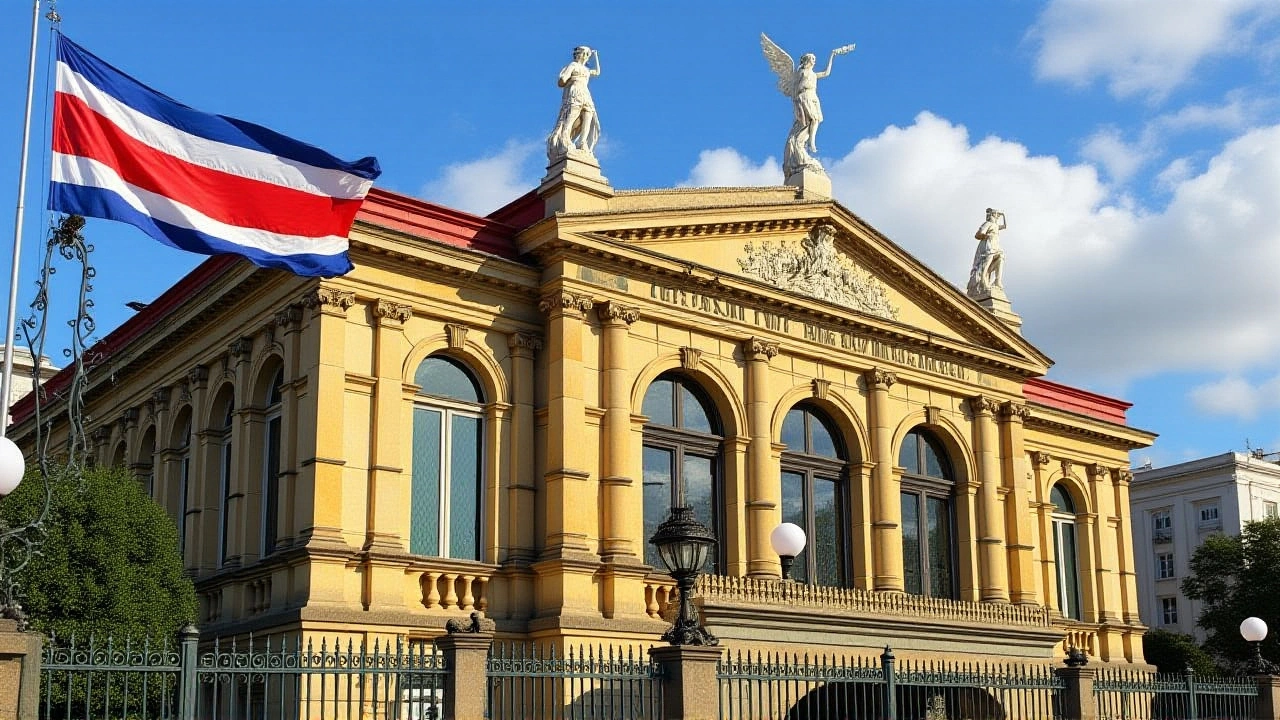When U.S. Department of State announced a fresh round of travel warnings on October 10, 2025, backpackers, business travelers and expatriates in Central America took notice. The agency slapped Honduras with a Level 3 “Reconsider Travel” alert because crime has spiked, while its eastern fringe, Gracias a Dios Department, was bumped up to the highest Level 4 “Do Not Travel” restriction. A step down, but still a warning, sits on Costa Rica, which remains at Level 2 “Exercise Increased Caution” for similar reasons.
Here’s the thing: the advisories don’t just sit on a website; they shape airline routes, hotel bookings and even insurance premiums. The State Department’s Travel Advisory UpdateWashington, D.C. was issued after a series of diplomatic cables flagged escalating gang activity in northern Honduras and a surge in petty theft in San José’s tourist districts.
What the New Advisories Mean for Travelers
At a glance, the Level 3 warning tells U.S. citizens to “reconsider” a trip to Honduras. In practice, that means you should weigh the risk of robbery, drug‑related violence and even police harassment before booking a flight. The Level 4 restriction on Gracias a Dios is absolute: U.S. Embassy in Tegucigalpa has barred its own staff and family members from entering the remote department. The wording is blunt—"Do Not Travel"—and the embassy’s security officers say the region’s sparse police presence and frequent narcotics trafficking make it a tinderbox.
For Costa Rica, Level 2 is a softer nudge. Travelers are urged to stay alert, especially in San José’s nightlife areas and popular beach towns like Tamarindo. The warning also flags a less‑talked‑about danger: cosmetic and elective surgeries that have gone wrong, sometimes fatally. The State Department notes that while many clinics meet U.S. standards, a handful of incidents have left American citizens in critical condition.
Spotlight on Gracias a Dios: Why the Highest Alert?
The department’s geography makes it a perfect case study. Nestled on the Caribbean coast, Gracias a Dios is crisscrossed by rivers and dense jungle, with few paved roads. According to a briefing from Matthew Miller, Spokesperson for the State Department, the area "is a remote region where narcotics trafficking is commonplace, infrastructure is weak, government services are limited, and police or military presence is scarce."
Police patrols rarely reach the interior villages, and the few military convoys that do appear are often ambushed. That scarcity of law enforcement fuels a cycle of extortion: locals report “illegal roadblocks” where armed groups demand cash for safe passage. The U.S. Embassy in Tegucigalpa has received dozens of reports from U.S. citizens who were robbed while on humanitarian missions, prompting the Level 4 designation.
Safety Tips for Those Still Heading to Honduras or Costa Rica
- Carry only cash in small denominations; avoid flashing foreign‑currency credit cards.
- Stick to well‑lit, populated areas after dark, especially in San José’s La Sabana district.
- Drink bottled or boiled water; tap water can carry parasites, especially during the rainy season (May‑October).
- If you must travel to the Bay Islands, stay in hotels with visible security and keep valuables locked away.
- For any medical procedure, verify the clinic’s JCI accreditation and ask for a copy of the surgeon’s credentials.
Travelers to the Bay Islands—Roatán, Utila and Guanaja—should also be aware that property disputes have led to violent confrontations. A recent survey by a local expat association showed a 27 % increase in reported harassment incidents among foreign landowners over the past year.

Broader Context: Worldwide Caution and Regional Turbulence
The Central American advisories don’t exist in a vacuum. On June 22, 2025, the State Department issued a global “Worldwide Caution” because of the simmering conflict between Israel and Iran. The advisory warned that airspace disruptions and anti‑U.S. demonstrations could pop up anywhere, including Central America. While the direct link to Honduras and Costa Rica is tenuous, the caution adds another layer of uncertainty for airlines, which have occasionally rerouted flights around the Caribbean to avoid potential missile‑tracking zones.
On top of that, Costa Rica sits on the Pacific Ring of Fire. The U.S. Geological Survey recorded three magnitude‑5.6 earthquakes in the country last year, prompting the State Department to remind travelers to locate the nearest emergency shelter and keep a “go‑bag” ready.
Looking Ahead: When Might the Advisories Ease?
All eyes are on Honduras’s upcoming presidential election in November 2025. If the newly elected government can boost police recruitment and crack down on drug corridors, the State Department says it will “reassess” the Level 3 rating within 60 days of the vote. For Gracias a Dios, the path to a lower rating is steeper; it would require a sustained military presence and infrastructure projects that the current budget—just $2.3 million for “border security” in the eastern region—doesn’t cover.
In Costa Rica, officials from the Ministry of Tourism have pledged a $12 million “tourist safety” fund aimed at training private security teams in high‑traffic zones. If the crime rate drops by the projected 15 % over the next six months, the State Department could consider moving the advisory to Level 1, which is “Exercise Normal Precautions.”

Key Facts
- Honduras: Level 3 advisory (Reconsider Travel) as of Oct 10, 2025.
- Gracias a Dios Department: Level 4 (Do Not Travel) – highest restriction.
- Costa Rica: Level 2 advisory (Exercise Increased Caution) – crime and health‑care concerns.
- U.S. Embassy in Tegucigalpa restricts its personnel from traveling to Gracias a Dios.
- Worldwide Caution issued June 22, 2025 due to Israel‑Iran tensions.
Frequently Asked Questions
How does the Level 3 advisory affect U.S. citizens living in Honduras?
Residents are urged to stay in well‑secured neighborhoods, keep emergency contacts updated, and avoid travel to rural regions like Gracias a Dios. While they can remain in the country, they may face longer response times from U.S. consular services if an incident occurs.
What specific crimes have risen in Costa Rica’s tourist hotspots?
Petty theft, especially bag‑snatching on beach promenades, and organized “tourist‑targeted” scams involving fake rental agencies have surged by roughly 18 % since early 2025, according to local police reports.
Are there any health requirements travelers should meet before visiting Honduras?
The CDC recommends hepatitis A, typhoid and routine vaccinations. Travelers should also bring water‑purification tablets, as the Mayan Gateway advisory still advises against drinking tap water or ice in most parts of the country.
What should U.S. citizens do if they’re caught in an earthquake in Costa Rica?
Drop, cover, and hold on until the shaking stops, then evacuate to open spaces away from buildings. Keep a pre‑packed emergency kit with a flashlight, radio and copies of passports, as power outages can linger for days.
Will the Worldwide Caution affect flight routes to Central America?
Airlines have occasionally rerouted over the Caribbean to avoid potential air‑space closures linked to the Israel‑Iran conflict. Travelers should check with carriers 48 hours before departure for any last‑minute changes.

